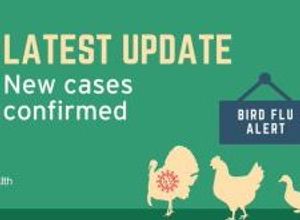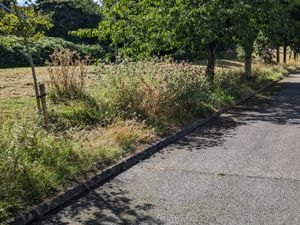Bird flu found in owl on Staffordshire-Shropshire border
Bird flu has been detected in wildlife in a town on the Shropshire-Staffordshire border.

It has prompted a new public health warning, with people warned not to touch any dead birds they may come across.
The move follows the discovery of avian influenza A(H5N1) in an owl in the Market Drayton area in north Shropshire.
The Department for the Environment, Food and Rural Affairs (Defra) and the Animal and Plant Health Agency (APHA) said residents and walkers should not approach any sick or dead wild birds but instead report their discovery to the authorities.
Pets should also be kept on a lead and away from any potentially infected birds while out and about.
Staffordshire County Council today said it is working in partnership with with Newcastle-under-Lyme Borough Council, APHA and UK Health Security Agency (UKHSA).
It says it aims to manage the situation, protect public health and reduce the risk of it spreading to other animals.
The strain is highly transmission risk to other birds, but the risk to human health is considered low.
Infection control measures may be necessary if people touch infected carcasses or ill birds.
UKHSA’s West Midlands health protection consultant Dr William Proto said it is important that people follow the advice given.
He said: “The A(H5N1) strain is currently the most common strain of bird flu in this country and is highly pathogenic to other birds.
“The risk to the public from avian flu remains low.
"However it is possible for humans to catch the virus, so it is vital that people do not touch any sick or dead birds, or have contact with their droppings, eggs or bedding, which may also be contaminated.
“As a precaution anyone who has been in direct contact with a sick or dying bird in an area where the infection has been confirmed will require close monitoring and follow up with UKHSA.”
Staffordshire’s Trading Standards Animal Health service boss Councillor Victoria Wilson said it was likely the bird flu had spread to a wider area than just tje Staffordshire-Shropshire border.
She said: “We are still seeing avian flu across the county which is why it’s important that we all do what we can to help reduce the spread of the virus in bird populations.
“Visitors to country parks, green spaces and outdoor attractions should not feed any wild birds and keep their dogs on leads near water where there are wild waterfowl.
"People who find dead birds should notify staff at visitor sites or park rangers, and report injured or sick birds to the RSPCA.
“It’s also vital that people who keep birds and poultry continue to maintain high standards of biosecurity and keep their poultry housed. Good biosecurity is an essential defence and is key to limiting the spread of the virus.”
Scientists say that, although the risk to humans is minimal, there is a chance that bird flu could evolve in the future.
Professor Ian Brown, head of virology at the Animal and Plant Health Agency, has called for work to begin on a vacccine as he said the rapidly evolving virus was increasingly spreading from birds into mammal species, raising the threat to humans."
Sick wild birds should be reported to the RSPCA by calling 0300 1234 999 or online via gov.uk/guidance/report-dead-wild-birds.





